The Comenian Interviews New Associate Provost and Dean, Dr. Lesley Brown
Dr. Lesley R. Brown is the new associate provost and founding dean of the College of Arts & Sciences at Moravian University. Prior to coming here, Dr. Brown served as the interim dean of the College of Arts & Sciences at Shippensburg University and, before that, was assistant dean of Academic Services and associate dean of Health Professions at Baltimore City Community College (MD). She earned an Sc.B in chemical engineering at Brown, an M.A. in chemistry at the University of Texas in Austin, and a Ph.D. in biophysical chemistry at the John Hopkins School of Medicine.
This interview has been edited for brevity and clarity.
What appealed to you initially about Moravian?
Well, Moravian is very impressive. It’s the sixth oldest university in the nation. That implies that they are forward-looking. I was also very impressed that a university with liberal arts at its core embraces the fact that you know students need to find a career or come to find a career. I thought that was very progressive because a lot of liberal arts colleges aren’t there yet.
And when I came for the interview, I just liked the people. There is a real commitment to the students, and now that I am here, there is a commitment to one another, as well. I told my faculty the other day that just the way they do things is motivating for me. So, I am looking forward to all of us working together to keep Moravian here for another several hundred years.
What do you hope to accomplish in your new role as dean of Arts and Sciences?
I would like there to be more collaboration between all players in the arts and the sciences, which includes humanities, social sciences, business, and interdisciplinary studies; it’s more than just two areas. The phrase we often use is “to break down the silos.” But in terms of us needing all perspectives to go forward in an ethical and caring fashion for the earth and its inhabitants, we need to definitely have the voices of people being able to explain to folks who are not scientists the pros and cons of our development.
How do you see the humanities and the sciences co-existing in the future?
I would like there to be a balance [between the two]. I certainly would hate to see them become more separated.
I think we can prevent that now by making sure that there’s more collaboration and by being very intentional in terms of embracing the differences in how we approach seeing, with both [the humanities and the sciences] helping to make our progress better. Because you never know exactly where you want to go, but you want to go there very intentionally and very deliberately; I am very big on doing it in such a way that you don’t kick cans down the road.
What challenges do you think you’ll face in your new role as dean?
A challenge that is across all of higher education is that higher education is just changing at a much more rapid pace than it has in the past. The world is changing at a much more rapid pace, but in general, academia tends to be very deliberate and moves more slowly than other sorts of areas. I think we’re just going to have to get a little bit of the lead out so we can continue to provide a relevant education.
And not just educating traditional college-age students but everybody who now sees a need for it. I think we have to be broader in how we deliver, perhaps in how we involve people in scholarship. Because we have students coming back now at different stages of life. And I really think there is a lot to be gained from having students who have more life experience than a typical high school graduate. [They] come in and bring ideas to help with a lot of the research that we are doing. We need to cast a wider net.
What do you enjoy doing in your free time?
I’m active. I like to garden, and I like to play tennis. I was playing regularly before COVID-19 back when I lived in Maryland; I played in leagues. I am a caregiver for my mother, [which] takes up a bit of time, so I haven’t played as regularly as I would like. But I am really looking forward to getting back into it.
I [also] love to eat! [I enjoy] any sort of rice-based dishes. Most cuisines of the world include a lot of rice, and I definitely enjoy that. I love Asian cuisine. I just love everything. I haven’t really found anything that I don’t like, let’s put it that way!
What was the last show binged watched or a book you read that captivated you?
I am reading ‘Braiding Sweetgrass.‘ [The author, Robin Wall Kimmerer], who is a botanist, belongs to a group of people called the Citizen Potawatomi Nation. In the book, she talks about their ways of knowing, of understanding the earth. It’s just so uplifting to read about someone who is comparing and contrasting the sort of empirical type of science with what the Potawatomi people have always done in caring about the earth. The book has been very eye-opening for me.
Do you believe, as the dean of both the arts and sciences, that University can and should support the humanities in light of the academic inflation of STEM vocations?
Yes! And I think we do a good job of that here, because anyone that gets a liberal arts degree from Moravian or from any other liberal arts college, about 25% of their course work is in the liberal arts. So you get that grounding, and I think it makes a world of difference in terms of the questions you ask and the things that you consider. And being able to understand language and the concerns of people who are outside of STEM, you just have a better appreciation.


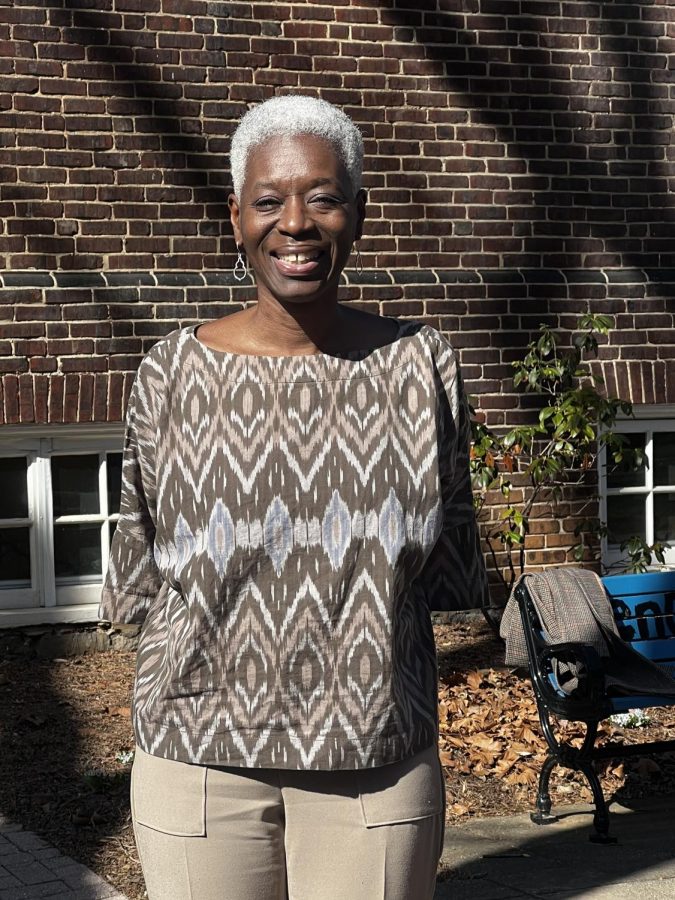

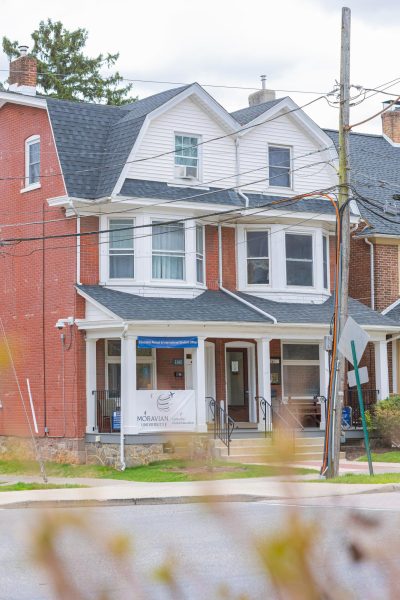
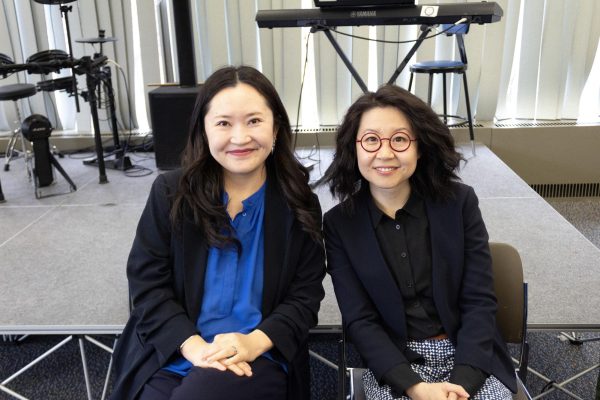
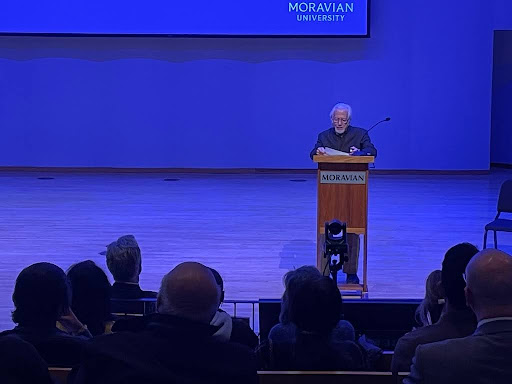
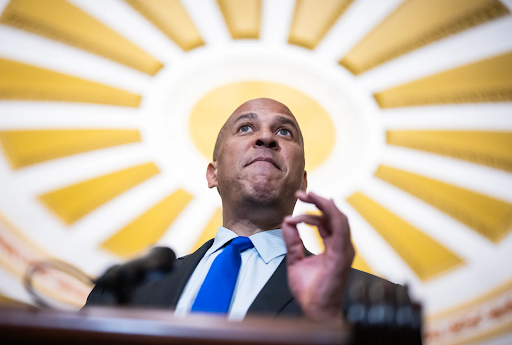
Jack Jenkins • Mar 10, 2023 at 6:18 pm
This is my comment, well written.
Nice story of Dr. Brown felt like we get a good sense of who she is and her vision for the future of Moravian university. She appears to be of high caliber and an excellent choice for the position of Provost and Dean of arts and sciences.
Her ideas about collaboration and needing perspectives from all sides to go forward, really makes sense seeing the value of both disciplines, and how they can both be beneficial.
Her statement about our rapidly changing world, and wanting to keep up or stay ahead, is very forward thinking.
Knowing that life experience of older students is a valuable asset, and finding ways to reach out and recruit these people with educational solutions for their future.
I really appreciate her inclusive focus.
Jennifer • Mar 10, 2023 at 2:56 pm
Very lovely article. It is wonderful to get to know Dr. Brown a bit more. What a beautiful human. Moravian University is lucky to have her experience and expertise. Great Article
Jennifer • Mar 10, 2023 at 2:52 pm
Very lovely article, Dr. Brown is amazing and is such a wonderful person to have at the University. Great reporting